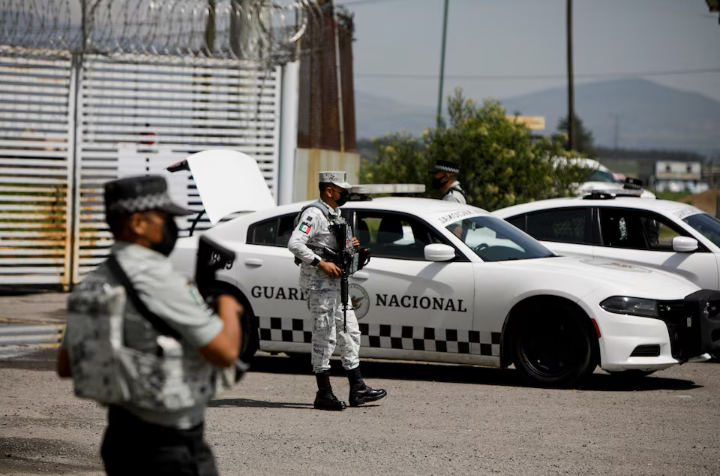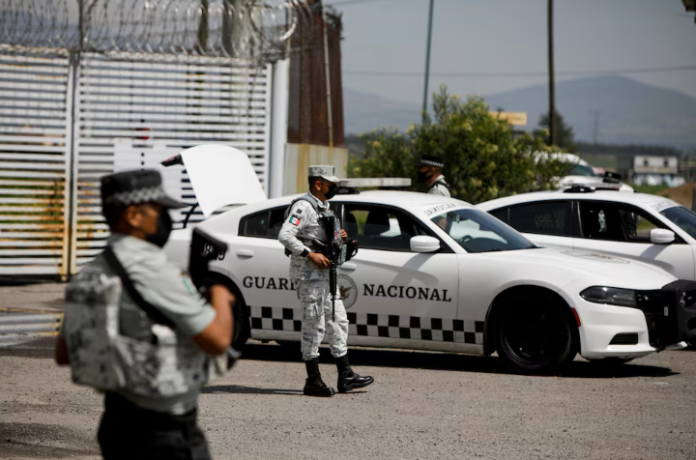In a historic move, Mexico has extradited 29 alleged cartel members to the United States, marking the country’s largest such operation in a decade. Among them is Rafael Caro Quintero, the infamous drug kingpin responsible for one of the most notorious crimes in U.S. drug enforcement history—the murder of DEA agent Enrique “Kiki” Camarena.
This extradition comes at a critical time, as the U.S. government, under President Donald Trump, has been pressuring Mexico to take stronger action against drug trafficking and illegal migration. Trump recently threatened to impose a 25% tariff on Mexican goods if Mexico failed to curb the flow of fentanyl and migrants into the U.S.
Who is Rafael Caro Quintero?
Rafael Caro Quintero, now 72 years old, was a founding member of the Guadalajara Cartel, one of Mexico’s most powerful drug organizations in the 1980s. He spent 28 years in a Mexican prison for orchestrating the brutal 1985 killing of DEA agent Enrique Camarena. However, in 2013, he was released due to a legal technicality, only to be recaptured in 2022.
The U.S. government had long sought his extradition, and in 2020, he was indicted in Brooklyn federal court on drug trafficking and weapons charges. Now, Caro Quintero is set to stand trial in the same courthouse where Joaquin “El Chapo” Guzmán was convicted in 2019.
A Wave of Extraditions Targeting Cartel Leaders
Alongside Caro Quintero, other high-profile cartel figures were also extradited. This includes:
Vicente Carrillo Fuentes, alleged boss of the Juarez Cartel, who is accused of drug trafficking and ordering executions of rival gang members.
Antonio Oseguera Cervantes, the brother of Jalisco New Generation Cartel (CJNG) leader Nemesio “El Mencho” Oseguera Cervantes.
Members of the Sinaloa Cartel, who played key roles in smuggling fentanyl into the U.S.
These cartel figures will face charges in federal courts across the U.S., including New York, Texas, California, Illinois, Arizona, North Carolina, and Washington, D.C.
Why Now? The U.S.-Mexico Political Dynamic
The timing of this mass extradition is significant. President Trump’s threats of economic penalties appear to have played a role in Mexico’s decision to cooperate. Fentanyl, a synthetic opioid largely produced in Mexico using Chinese precursor chemicals, has become a major crisis in the U.S., fueling over 100,000 overdose deaths annually.

With Trump set to reinstate tariffs on Mexican goods by March 4, Mexico is under immense pressure to show results in its crackdown on organized crime. Extraditing major cartel leaders is a clear signal that Mexico is willing to cooperate with the U.S. to avoid economic consequences.
What Happens Next?
Caro Quintero and the other cartel leaders will now face high-profile trials in the U.S. If convicted, they are likely to receive life sentences in high-security American prisons, similar to El Chapo. Meanwhile, the extraditions mark a major victory for U.S. law enforcement, particularly the DEA, which has pursued Caro Quintero for decades.
However, whether this move will truly weaken Mexico’s cartels remains uncertain. The drug trade is resilient, and new leaders often emerge to fill power vacuums left by those arrested. For now, though, this mass extradition represents a significant moment in the ongoing war on drugs between the U.S. and Mexico.



